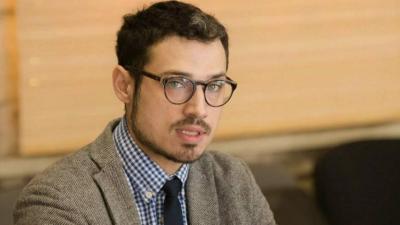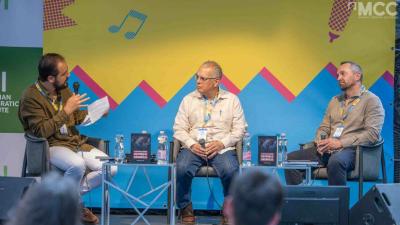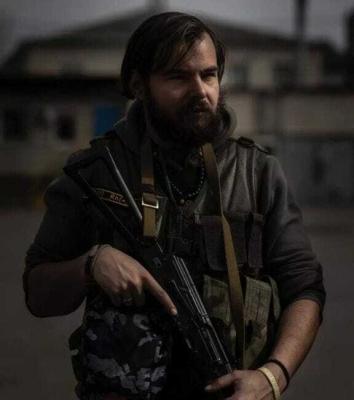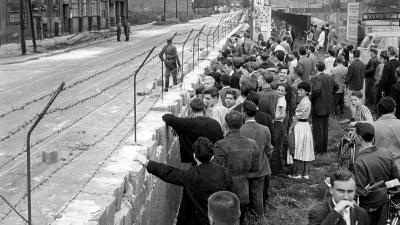Dionis Cenusa is an associate expert at EESC (Eastern European Studies Centre) and a researcher and Ph.D. student at the Institute of Political Science at Justus Lybig University in Giessen, Germany. An author of numerous studies on European integration, EU-Russia interaction, good governance, and energy security in Eastern Europe, he is also an associate expert at the Moldovan think tank Expert-Grup, where he has been coordinating a project on Georgia, Moldova, and Ukraine since 2015.
Álvaro Peñas: The Parliament of the Moldovan separatist region of Transnistria asked Moscow for help because of “increased pressures” from Chisinau. What is the situation between Moldova and Transnistria at the moment? Is this request an attempt to provoke a casus belli?
Dionis Cenusa: The breakaway region of Moldova is trying to resist economic policies pursued by constitutional authorities in Chisinau that aim to reintegrate the country. Neither the separatist administration of Transnistria nor the Moldovan government are interested in a military altercation between them. The costs are high for both parties, but even more so for the political-economic elites of Transnistria who could confront the Ukrainian factor. Kyiv can easily advocate for economic and individual sanctions applied to the region by the EU, which is the main market for goods produced in Transnistria. Most separatist elites hold Ukrainian passports. Similarly, Ukraine hinted in 2022-2023 that it may intervene militarily if the breakaway region poses threats. The costs for Moldova will mainly manifest themselves in socio-economic areas, with a high probability of a humanitarian and energy crisis as Moldova purchases cheap electricity from Transnistria.
Moldova’s response has been to withdraw from the agreement limiting the presence of foreign troops and weapons on its territory. Moldova is a candidate for EU membership, but what allies could it count on in the event of conflict?
Moldova does not have any bilateral agreements involving a mutual defense clause, mainly due to its constitutional neutrality. However, it is Russia that has violated this provision by maintaining its occupation forces, ranging between 500 and 1,500 soldiers, in the region since the mid-1990s. The only plausible way for an EU member state to help is by participating in military cooperation, including help with the modernization of the Moldovan army, both in terms of equipment and training of soldiers. Investment in Moldovan deterrence potential and anticipation of military conflict represent the most favorable scenario for Moldova, especially taking into account Russia’s increasing number of offensive operations in its current aggression against Ukraine.
Agreements such as the one signed with France on 7 March?
Yes, a military cooperation agreement. What has been published in some media that France wants to have a military or other mission in Moldova is pure disinformation.
Has Russia’s failure to advance on Odessa prevented a conflict between Moldova and Transnistria?
If Russia had been able to reach Odesa, Moldova would have faced a humanitarian crisis, with the population fleeing Chisinau as it is located very close to Transnistria. It is unclear whether Russia would have needed to invade Moldova or initiate a conflict because, faced with military threats, Moldovan authorities might have been forced to make concessions to avoid a costly military conflict with Russia leading to possible defeat and capitulation. Therefore, Ukraine’s ability to defend itself does not allow Russia to approach Odesa and reach Transnistria, where it would pose a direct military threat to Moldova.
In other words, Ukraine’s defence is the guarantee of Moldova’s security.
It is one of the key guarantees.
So, without the support of Russian troops, Transnistria poses no threat to Moldova?
The political-economic elites of Transnistria do not need a conflict involving the Ukrainian factor. The breakaway region seeks to preserve the status quo or improve it by taking advantage of Western pressure on Moldova to review recently implemented trade policies, including those that led to the circulation of scenarios regarding Russia’s annexation of Transnistria. Neither Russia nor the Transnistrian elites want that at the moment because it would mean the loss of strategic Russian influence in Moldova and the region in general.
A little over a year ago, Moldovan President Maia Sandu accused Russia of preparing a coup d’état. What is the internal situation? What support does the pro-Russian opposition have?
Moldovan authorities periodically send alarmist messages about Russia’s intention to organize coups against the current government. Until now, these statements were not supported by conclusive evidence. Intelligence stated that they dismantled a group linked to Russia that was preparing subversive actions or that they applied entry bans to various categories of nationals suspected of being part of scenarios linked to coups d’état. On the other hand, there is evidence of attempts by political forces to coordinate their political activity from the outside, investing in the protesting mood in the society. This is related to fugitive businessmen, convicted in absentia (Ilan Shor, based in Israel) or investigated for bank fraud (Vlad Plahotniuc, allegedly based in Turkey; and Vlad Platon, seeking political asylum in the United Kingdom), who promote an anti-government agenda in Moldova. Of the three, only Ilan Shor poses as a pro-Russian politician. His frequent meetings with Russian officials make him suspected of working hand in hand with Russia in implementing hybrid threats linked to disinformation.
The greatest risks are related to the militarization of poverty in Moldova, which affects more than a third of the population. This segment is vulnerable to bribery, which Shor and his group massively use through illegal financing. The poor segment of society can be more easily drawn into protests and other populist demonstrations against the government. In any case, there are different categories of people in Moldova who have justified reasons to protest (mainly the farmers), but many of these categories are perceived by the ruling party and intelligence services as a product of Russian hybrid warfare, despite the lack of evidence that can support such assumptions.
What message is Putin sending by meeting with Evghenia Guțul, the head of the Moldovan Gagauz autonomy — itself a territory closer to the Romanian border than to the Transnistrian region?
Russia is exploiting divisions in Moldova, and the lack of dialogue between Chisinau and the Gagauz autonomy contributes to this. At the same time, the government is trapped because, if it begins to dialogue with Gagauzia, it will legitimize the mandate of Evghenia Guțul, who is an associate of Ilan Shor. If Chisinau keeps its distance and puts pressure on Gagauzia, as is the current case, through the use of budgetary means (VAT payment, etc.), then the polarization and distrust of the Gagauz population towards the central authorities will increase. In both cases, Russia is trying to take advantage of all of the options available to the Moldovan government.
This interview was originally published on: “Russia is exploiting divisions in Moldova”: An Interview with Dionis Cenusa ━ The European Conservative
Read also
Alejandro Peña Esclusa: “We must create a mass movement capable of defeating cultural Marxism”
In my previous article, “That wonderful feeling of normality”, I commented on the enormous variety of debates organised by the Mathias Corvinus Collegium.
Álvaro Peñas
Corruption sinks Portuguese socialism
Socialism has the peculiarity that it impoverishes the countries in which it governs, but makes those who govern rich. In Portugal, after a year of corruption scandals involving ministers and senior members of the Socialist Party, it has finally been the turn of Prime Minister António Costa.
Álvaro Peñas
Francisco Floro: 'Basically, this invasion is about the reconstruction of the former Soviet space'.
Interview with Francisco Floro, Spanish volunteer in Ukraine.
Álvaro Peñas
The Wall
The Berlin Wall fell, but the world is once again divided by an invisible wall. The West that faced the Cold War and bloc politics was stronger than the West we live in today, with disastrous policies and a complete lack of faith in ourselves, but still no one jumps over the wall to the other side.














Comments (0)